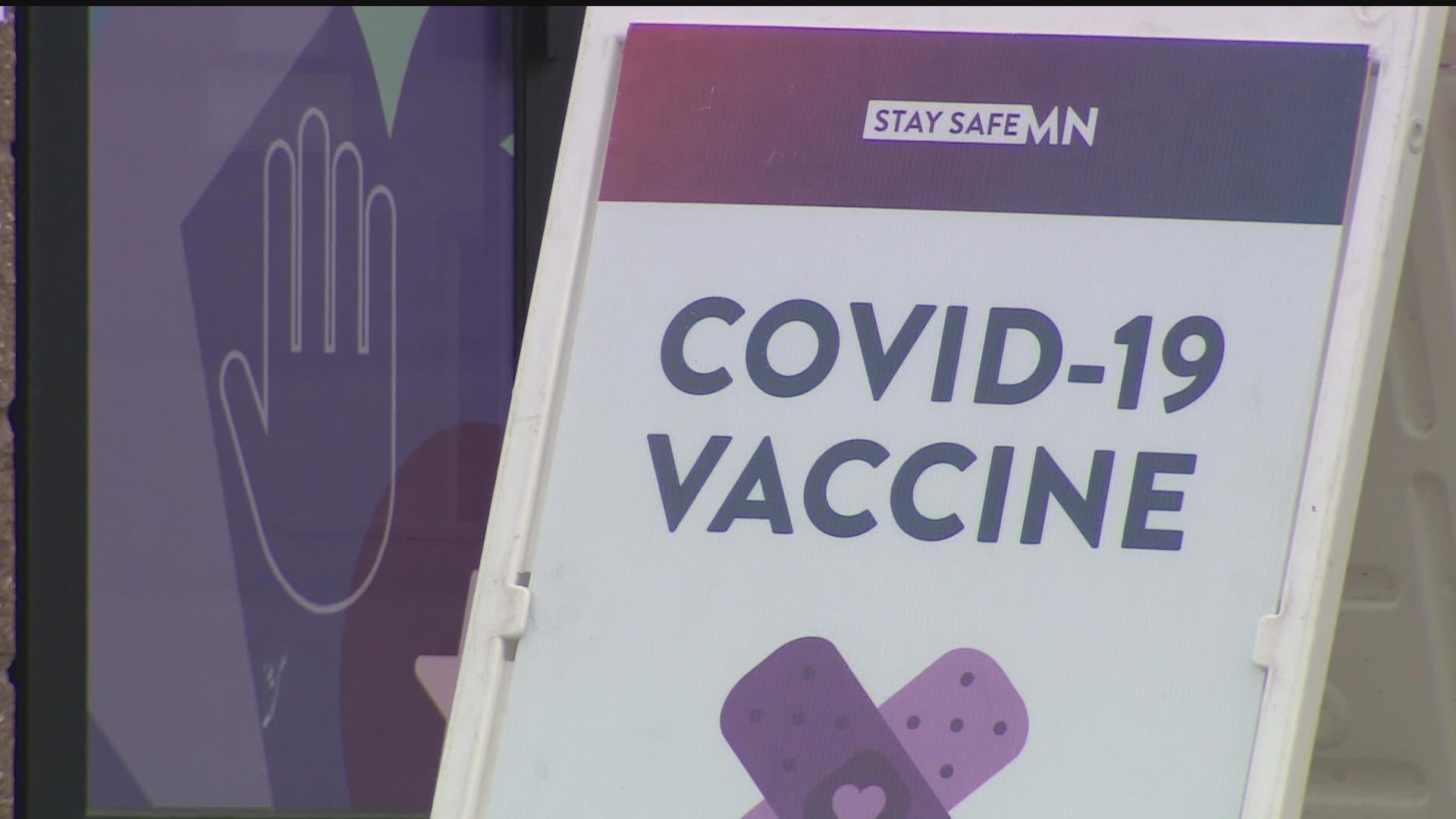MINNEAPOLIS — When Sara Oberg's 4-year-old daughter and 2-year-old son became eligible for the COVID-19 vaccine in June, she carefully weighed her options.
"My husband and I were going back and forth," Oberg said. "He kind of wanted to wait a month or two and see how it went."
Ultimately, they decided as a family to bring both kids for their first doses last week due to a combination of factors, including a change to COVID-19 exposure rules at their daycare.
"Everybody has a different stance on that, and I respect that, but I want to do what's best. It's a hard decision," Oberg said. "I feel like they finally have a little bit of protection."
Oberg's story is hardly unique. In fact, this spring, 38 percent of U.S. parents told the Kaiser Family Foundation that they planned to wait to vaccinate their children younger than 5 until they could "see how the vaccine is working for others."
Dr. Gigi Chawla, the chief of general pediatrics at Children's Minnesota, said it's only natural for parents to have questions about the vaccine for their youngest kids. While children between the ages of 5 to 11 became eligible for vaccines last year, the 6-month-to-4-year-old age group has only been eligible for a little more than three weeks.
"I think just the delay and the timing has created a little delay and hesitation. It's summertime, and we can be outdoors. It's vaccine 'as needed,'" Chawla said. "So, we're seeing a little bit of a slower uptake for the vaccination of 6-months-to-4-year age group than we would really like."
According to Minnesota Department of Health data, only 5 percent of kids in this age group statewide -- a little less than 15,000 -- got their first doses through the first three weeks of eligibility. In the 5-to-11 group, meanwhile, about 39 percent of kids are fully vaccinated, although that's 10 points higher than the national average. The American Academy of Pediatrics recommends all kids 6 months and older to get vaccinated unless they have certain medical conditions.
Given these guidelines, Dr. Chawla encouraged parents to vaccinate their children before the 2022-23 school year starts.
"It's safe, it's effective, and it has shown to really save lives," Chawla said. "In order to be protected for fall and the school year, you do want to start with your child now."
Dr. Andrea Singh, the chair of pediatrics for Park Nicollet, said parents should think longer-term about the benefits of the vaccine.
"Right now, it may not seem like it's super necessary because either your child is not in regular school, or we're spending a lot of times outdoors with family members. But what about when it comes to the holidays in the fall, or when it's 20-below in Minnesota and we all have to be inside?" Singh said. "Do you want to get your child fully vaccinated for holiday gatherings? If you do, and your kiddo is between the ages of 6 months and 5 years and, for instance, you're considering getting them the Pfizer vaccine -- you have to consider a three-month lag between the first dose and the third dose to get full protection."
Watch more on the coronavirus:
Watch the latest reports and updates on the coronavirus pandemic in Minnesota with our YouTube playlist:

